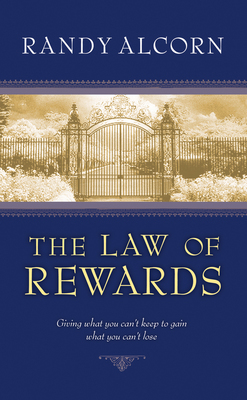Randy Alcorn's Blog, page 93
December 11, 2019
Three Things to Remember When Giving Comfort to Grieving People

“Rejoice with those who rejoice; mourn with those who mourn” (Romans 12:15). We tend to do better at rejoicing. Because we don’t like to feel pain, we tend to ignore others’ pain. But they need us to become the arms of Christ to them.
Here are three things to remember when we’re called upon to comfort those who are grieving, especially during this holiday season:
1. To ignore someone’s pain is to add to that pain.
Instead of fearing we’ll say the wrong thing, we should reach out to hurting people. Many times it’s better just to put our arms around someone and cry with them; people almost always appreciate it when you acknowledge their loss. Yet so long as your heart is right, saying something is nearly always better than saying nothing.
People need to feel loved. A hurting child needs to feel his father’s arms around him. When the father is away, he may leave written words of love, as God has in His Word. But he may also call on the child’s older brothers and sisters to express his love to his child.
2. There is a time for silence, to just sit and listen and weep with those who weep.
We often condemn Job’s friends, but we should remember that they started well. When they saw his misery, they wept aloud. And then for seven days and nights they sat with him, in silence, wordlessly expressing their concern for him (see Job 2:11–13).
If we don’t know what to say to a friend in crisis, remember that so long as Job’s friends remained quiet, they helped him bear his grief. Later, when they began giving unsolicited advice and rebuke, Job not only had to deal with his suffering, but with his friends’ smug responses, which added to his suffering.
When someone in pain expresses raw emotions, we shouldn’t scold them. Friends let friends share honest feelings. When the premature and misguided correction of Job’s friends hurt Job, they didn’t have sense enough to say, “I’m sorry,” and then shut up. They went right on hurting him. So Job said to them, “Miserable comforters are you all!” (16:2).
Darrell Scott told me that after his daughter Rachel was murdered at Columbine, people often quoted Romans 8:28 to him. He wasn’t ready to hear it. How sad that such a powerful verse, cited carelessly or prematurely, becomes a source of pain when it should offer great comfort. Think of God’s truths like tools. Don’t use a hammer when you need a wrench. And don’t use either when you need to give someone a hug, a blanket, or a meal—or just weep with them.
On the other hand, Nancy Guthrie says sufferers should extend grace to the insensitive comforters who hurt them. The last thing a grieving person needs is to take on the burden of resentment. “Be kind and compassionate to one another, forgiving each other, just as in Christ God forgave you” (Ephesians 4:32).
3. Don’t disappear or avoid your friend who needs you now more than ever.
My mother died in 1981, when I was a young pastor. Ten years earlier, not long after I’d become a Christian, I had the joy of leading Mom to Christ. We grew together, reading and discussing Scripture and great books, praying and laughing together, and later fussing over my children, her granddaughters, Karina and Angela. When she died, I mourned my loss, my wife’s, and above all my children’s. I felt like part of me had been taken away.
As I walked into church that first Sunday after Mom’s death, I felt as though my presence parted the Red Sea. Instead of greeting me warmly in their usual way, people stepped aside. I knew they did it because they didn’t know what to say, yet it magnified my loneliness.
Most of us have seen friends disappear when we most needed them—and without meaning to, we’ve done the same to others. If you find yourself not wanting to make a phone call when you hear about someone’s crisis, remind yourself that any expression of concern is better than none. When people lose a loved one, they don’t want to “move on” as if the person never existed. Even if doing so makes them cry, usually they want and need to talk about them.
Here are some recommended books for those who are grieving (and those who are ministering to them):
Children and Grief: Helping Your Child Understand Death by Joey O’Connor: resource to help children deal with death, loss and grief.
Experiencing Grief by Norman Wright: a classic book on grief that leads readers through five essential stages of grief.
Five Cries of Grief: One Family’s Journey to Healing by Merton and Irene Strommen: written from a grieving parent’s perspective, provides strength, insight, and renewal for those who are grieving.
Good Grief by Granger E. Westberg: booklet that guides readers through the ten stages of grief.
A Grace Disguised: How the Soul Grows Through Loss by Jerry Sittser: shows that it’s how we respond to painful circumstances that allows us to experience growth in the midst of grief.
Holding on to Hope: A Pathway Through Suffering to the Heart of God by Nancy Guthrie: excellent book that is biblical, theologically sound, compassionate, and caring.
Journeying through Grief: a set of four short books to share with grieving people throughout the first year after their loss. (Available from stephenministries.org.)
Letter to a Grieving Heart: Comfort and Hope for Those Who Hurt by Billy Sprague: shares words of comfort that carried the author through grief to a place of strength.
O Love That Will Not Let Me Go: Facing Death with Courageous Confidence in God by various authors (contributors include John Piper, R.C. Sproul, and Randy Alcorn): A collection of writings encouraging believers to face death with a firm and confident belief in the character and promises of God.
Reflections of a Grieving Spouse: The Unexpected Journey from Loss to Renewed Hope by Norman Wright: help for those who have lost a spouse.
Tear Soup by Chuck DeKlyen, Taylor Bills, and Pat Schwiebert: a story picture book, beneficial for both children and adults.
When Life is Changed Forever By the Death of Someone by Rick Taylor: speaks to wounded hearts and offers a hope that life can be lived fully again.
When Your Family’s Lost a Loved One: Finding Hope Together by Dave and Nancy Guthrie: guides readers through the challenges of keeping their family together and strong.
Some readers have also found my books on Heaven and suffering to be helpful.
Photo by Ryan Crotty on Unsplash
December 9, 2019
History’s Greatest Plot Twist: God’s Son Became a Baby

God is the Great Storyteller. With grand artistry, He brings forth a beautiful world in a spectacular universe. As the culmination of His creativity, He fashions Adam and Eve. He could have shielded them from Satan’s temptations, warding off evil, suffering and humanity’s curse. But He didn’t. So the man and woman rebel against God, and evil enters the world.
Thousands of years go by as humanity’s struggle intensifies. God promises a Redeemer, and with eagerness His people look for one to come forth triumphantly, overthrowing their enemies and setting up His kingdom. But the centuries pass without the Redeemer’s appearance.
In a fantastic plot twist, God’s son becomes a baby. He grows up to be a humble carpenter, heals the sick, raises the dead, and allows His enemies to kill Him, all to redeem the people He loves. He rises from the dead, commands and empowers His followers to serve Him, then leaves but promises to return. With the force of His resurrection to back it up, He reiterates the promise: one day He’ll make all things right and will come to live forever with His people.
God wrote the script of this drama of redemption long before Satan, demons, Adam and Eve—and you and I—took the stage. And from the beginning, He knew that the utterly spectacular ending would make the dark middle worth it. Paul writes, “This grace was given us in Christ Jesus before the beginning of time” (2 Timothy 1:9). How could God give us grace before our lives began, even before the universe existed? Only because God knew and determined in advance the work of Christ on the Cross.
Eden’s greatest attraction was God’s presence. Sin’s greatest tragedy was that God no longer dwelt with His people. But this all changed and John 1:1 sets it up: “In the beginning was the Word and the Word was with God, and the Word was God.” And then comes this verse that bursts forth like fireworks: “The Word became flesh and made his dwelling among us. We have seen his glory, the glory of the one and only Son, who came from the Father, full of grace and truth” (John 1:14).
The God who lives in unapproachable light became approachable in the person of Jesus! People could look at Jesus and see God. He is Immanuel, “God with us.” And He is not only all about truth, He is all about grace—a grace that delivers us from the Hell we deserve and grants us the Heaven we don’t deserve!
Even before Christ’s incarnation, God came to the Garden to walk with Adam and Eve. But Christ’s incarnation and resurrection took it much further—one member of the transcendent triune God became permanently immanent. Jesus is in physical form, a human resurrection body, for all eternity.
The miracle of the Cross was made possible by the miracle of the Incarnation. The angels must have been stunned to see the second member of the triune God descend to Earth and become a human being. The baby born in that Bethlehem barn was God, and He was born to die. His death delivers us from Hell at our death, and therefore delivers us from the fear of death. His suffering on the cross atoned for our sins, but His suffering, tests, and temptations allowed Him to understand, empathize and help us.
God’s love comes to us soaked in divine blood. One look at Jesus—His incarnation and redemption He provided—should silence the argument that God has withdrawn to some far corner of the universe where He keeps His hands clean, maintaining His distance from human suffering. God doesn’t merely empathize with our sufferings. He actually suffers. Jesus is God. What Jesus suffered, God suffered. Christ’s incarnation and atonement provide the ultimate demonstration of love.
David says, “One thing I ask of the Lord, this is what I seek: that I may dwell in the house of the Lord all the days of my life, to gaze upon the beauty of the Lord and to seek him in his temple” (Psalm 27:4). David was preoccupied with God’s person and God’s place. He longed to be where God was and to gaze on His beauty. To see God’s face is to behold His beauty.
Because of the incarnation we get to be with Jesus today, but we’ll also be with Him in a fuller sense on the New Heavens and New Earth. When Jesus returns, conquers sin and death, makes all things right, and sets up His Kingdom here on earth, we’ll get to be in His presence forever. This is emphatically promised in Revelation 21:4.
God has His hands on the earth. He won’t let go—even when it required that His hands be pierced by nails. Both His incarnation and those nails secured Him to Earth and its eternal future.
In a redemptive work far greater than most imagine, Christ bought and paid for our future and the earth’s—an unending future where we will dwell with the Word who became flesh.
Photo by Tim Mossholder on Unsplash
December 6, 2019
Want to Find Out How to Live the Good Life? Discover the Beautiful, Hope-Giving Answer from Scripture

“What’s the good life?” The world attempts to answer that question in many different ways, but they all lead to dead ends. The biblical answer is that the good life is to love the Lord your God with all your heart and mind and strength, and to love your neighbor as yourself. When you live that kind of life, among other things, it’s happy-making. Jesus said, “It is more happy-making to give than to receive” (Acts 20:35). The Greek word translated “blessed,” makarios, means happiness or happy or happy-making. So the good life is a happy life!
The problem is that we look for the good life, and happiness, in the wrong places. That’s why I wrote my book Giving Is the Good Life—I wanted to clarify what Scripture actually says about how we can experience the abundant life Jesus came to give us. And the answer from God’s Word is so beautiful and hope-giving! The good life is definitely not what the world claims it is. It’s what Jesus claimed it is.
Earlier this year, I was interviewed at Compassion International’s Chapel in Colorado Springs about Giving Is the Good Life. (Learn more about the connection between the book and Compassion here.) Stacey Foster did a great job asking me questions and leading our conversation. I think you’ll enjoy this 33-minute discussion and, and I hope, will find it beneficial:
Giving Is the Good Life on Sale, Plus Free Shipping
Giving Is the Good Life is on sale from EPM for $9.99 (44% off retail $17.99), plus get FREE USPS Media-Mail shipping on any order when you use the code FREESHIP at checkout.
Both offers end on Thursday, December 12 at 12 p.m. PT (noon). Free shipping is valid for U.S. continental orders only.
Photo by Alex Grodkiewicz on Unsplash
December 4, 2019
When Your Wife Is Dubbed a Female Chuck Norris

My wife Nanci was featured in a column Monday by Chuck Norris, our friend and brother in Christ. Chuck writes, “I know Nanci, and I know she's not happy with me placing this much focus on her, right Nanci?” He’s right. Both of us feel a bit awkward with the high praise for the two of us, but I’m nonetheless touched and grateful for Chuck sharing about Nanci’s cancer journey, and we deeply appreciate all the prayers on her behalf. Thanks, Chuck and Gena, for your friendship, love, and support. And thanks to everyone who has written words of encouragement to us and prayed for us! —Randy Alcorn
She's a female Chuck Norris
By Chuck Norris
Like with many of you, the Thanksgiving and Christmas season is our favorite time of year. It's a special time when we all get together with family and friends. It is a time of celebration, but it can also be a time of trial, especially if you're enduring hardships, like some close friends of ours – one of whom I'm calling "a female Chuck Norris."
I admire many of the amazing women and heroines who were a part of history, especially the American Revolution, some known and some not-so-known: those like Martha Washington, Abigail Adams, Lucy ("Lady") Knox, Sybil Ludington, Catherin Barry, Esther Reed, Margaret Corbin and Nancy Hart. All these women were incredible patriots and warriors.
My wife, Gena, and I also have many modern women we admire, too: like former first ladies Barbara and Laura Bush,Texas first ladies Anita Perry and Cecilia Abbott, Dr. Alveda King, Lili Baehr, Elizabeth Ridenour, Tania Beck, to name a few. In addition to these, we also know and respect many great women who have served our military and local law enforcement and first responder agencies. We also are grateful and blessed to know many women of charitable influence, those that serve as instructors and managers in our KickStart Kids Foundation and the many great women in our families. We love and respect them all for the different and giving qualities they embody and shine to us and others.
However, and I agree that I might be a bit biased, there are very few women I would put on par with Gena and my mom, but Nanci Alcorn is someone who makes the cut.
Gena and I have many special friends around the country and world. Among them are those who have had a great spiritual impact and influence on us. A couple at the top of that heap are Randy and Nanci Alcorn.
You undoubtedly have heard of Randy as he is one of the top-10 Christian authors in the U.S. and world. He is a New York Times best-selling author, who has written 58 books, including "Courageous," "Heaven," "Happiness," "The Treasure Principle," the Gold Medallion winner "Safely Home" and his most recent, "Giving is the Good Life." His books have been translated into over 70 languages and have sold over 11 million copies. He is also the founder of Eternal Perspectives Ministries (epm.org).
But behind all of Randy's success and service is his best friend and faithful wife for decades. If it's true that behind every great man is a great woman – and I believe it is – Nanci is that great female behind Randy. From their youth, she has stood by her man. I can say with certainty, when it comes to wives, Randy and I definitely "married up"! Right, Randy? [Note from Randy: “Definitely right!”]

Randy, Nanci and their beloved dog Maggie.

Randy and Nanci with their daughters, Angela and Karina, when they together wrote "The Ishbane Conspiracy."

The Alcorns, Gena and I having a little fun together.
The Alcorns have been good friends of ours for roughly two decades, and we've spent some choice times together from Texas to California. They've both been gigantic encouragers and Christian models and mentors to us. We love and thank them for their friendship, devotion and even patience with our often-ultra-busy lives.
In the beginning of 2018, it was difficult for us to hear when Nanci was diagnosed with colon cancer. We joined countless others in praying for her, Randy and the rest of their family, who are all precious souls, too. Nanci's healing would be found through a long year of surgery with a combination of radiation and chemotherapy treatments. And through it all, of course, they kept their faith in God, though they struggled as we all would.
Randy, who also wrote the must-read book, "If God is Good: Faith in the Midst of Suffering and Evil," shared some insights on his blog about how they made it through 2018:
Even in the midst of doctor visits and rounds of chemo, Nanci and I have been delighting in God through delighting in His Word, and have been discussing His faithfulness and aspects of His character. This has been an anchor for us. Jesus is the object of our faith and the source of our eternal perspective and present comfort.
One of the books Nanci has been reading is "The Joy of Fearing God," by Jerry Bridges. Jerry writes, "We cannot separate trust in God from the fear of God. We will trust Him only to the extent that we genuinely stand in awe of Him."
Nanci has also loved reading "Knowing God" by J. I. Packer and "Trusting God" by Jerry Bridges, along with A. W. Tozer's "The Knowledge of the Holy." Both of us highly recommend these books, because they center us on the person of God, which is where we all need to set our minds, whether we're facing cancer or anything else. Our hearts have been lifted in praise as we contemplate His holiness, grace, justice, mercy, and every facet of His being revealed to us in Scripture.
As much as we appreciate the physicians and the advances of medical science, we are reminded that our ultimate hope is not in them but in God. Trust in our sovereign and gracious and happy God, who alone is sufficient to bear the weight of our trust, allows Nanci and me to laugh and talk and pray together each night with an underlying foundation of happiness.
We are secure in God's love and fully trust Him to do what He determines is best for His glory and for Nanci's good. Scripture tells us, "Our God is in the heavens; he does all that he pleases" (Psalm 115:3).
At the end of 2018, when all was medically said and done, the Alcorns received great news as scans showed "no detectable cancer"! They celebrated – we all celebrated, and they spent the last year regrouping and resting. They deserved it. They needed it.
Unfortunately, in the last few months of 2019, through her routine checkups, the Alcorns received the disheartening news that Nanci's cancer was clear from its original area but had sometime previously spread to her lungs.
Last week, just two days before Thanksgiving, Nanci underwent another surgery to remove the cancerous nodules from her lungs.
Their daughter Angela described the good-news-bad-news outcome on Nanci's CaringBridge page:
Her surgeon was able to remove 2 of the suspicious nodules WITHOUT removing an entire lobe of her lung! [That's great news!]. For those of you who are medically inclined – he did a wedge resection not a lobectomy. This means that her recovery (that was expected to be 6-8 weeks) is now potentially only going to be 3-4 weeks instead.
Unfortunately, the surgeon said that he is 95% certain these nodules are malignant. We were definitely aware this was likely the case, but the biopsy results will tell us for certain in about 7 days.
Most likely chemo will be the next course of action after she fully recovers from surgery, but we'll have to wait to hear from her oncologist and the surgeon managing her original colon cancer.
We deeply appreciate all your prayers. We'll continue to update you as she recovers.
We encourage you to pray for our friends, Nanci and Randy, and their family. We'd even encourage you to join her CaringBridge page to read the latest in her progress. And please join Randy's Facebook page for further updates on Nanci as well as his spiritual encouragements to help you if you, too, are enduring tough times this holiday season.
Now, I know Nanci, and I know she's not happy with me placing this much focus on her, right Nanci? Or that I might share with millions of people from sea to shining sea that her birthday was on Saturday. And that one of the best ways people can bless her (and Randy) is to purchase a copy of her super-helpful book for women that would also make a great Christmas gift: "Help for Women under Stress: Preserving Your Sanity."
So, let me lift my personal concern for the Alcorns to add an encouragement that we also pray this Christmas for the cancer patients we know – especially the children, the medical teams who treat them, and that medical science continues to make advances and breakthroughs to overcome this dreaded disease. You might even consider making one of your Christmas donations to the American Cancer Society, which helps in myriad ways.
Alcorns, dear friends, we are so sorry for what you are enduring again, but we are honored to stand in the gap and help raise up God's great army across this country and around the world to pray and believe for Nanci's healing, too, and all of the Alcorn family's Christmas peace and joy, which is true "Happiness," as Randy teaches.
If you struggle knowing how to pray, then join Nanci in her passionate and empowering prayer this Christmas season, especially if you're facing your own hardships. Nanci gave us a glimpse into her faithful heart through a prayer she wrote based upon the inspiring and timeless words in Psalm 23. It's titled, "A Prayer to the Shepherd of My Life":
Please, Shepherd of my life,
Cause me to want nothing more – not even good health – than to have you as my Shepherd.
Reveal to me that the pastures and waters to which you lead me are green and still – because you are there!
Engage my heart to receive the restoration of my soul by your Holy Spirit.
Renew my conviction that, for your name's sake, righteousness is the direction of each path you have for me.
May your Holy Spirit – the Comforter – banish all my fears of evil (being out of control, letting pride inflate me, weakness, pain, loss of plans) as I walk through this valley – because you are with me!
Open my eyes and my ears to the protection and comfort of your rod and staff. Don't let me miss those things and people which you have provided me for this purpose.
Help me experience the table you have prepared for me in the presence of this cancer.
Don't let me overlook – or fail to ask for – your every healing drop of oil on my head.
Keep my perspective on my daily overflowing cup of your goodness and mercy.
Direct my longing toward my place in your house, forever!
Now, do you see why I call Nanci "a female Chuck Norris"?
December 2, 2019
How Giving Can Bring Us the Best Christmas Ever (and an Invitation to Partner with EPM This Giving Tuesday)

In my book Giving Is the Good Life, I tell the story of ten-year-old Riley and how she experienced the happiness of giving. A few years ago, while shopping online for a bike as a present for her dad, Riley and her mom followed a video link about an organization that provides specially engineered bicycles for individuals with disabilities. Seeing the happy faces of people riding the bikes, Riley told her mom, “I’m going to buy a bike for one of those kids.”
Riley’s mom loved her daughter’s heart, but the cost of just one special bike was a few thousand dollars. Two days later, Riley showed her mom a letter she’d written explaining how the bikes could help those in need and requesting donations.
After Riley sent the letter to seventy-five relatives and friends, money started pouring in. Word spread, and as Christmas neared, more donations came. On Christmas, Riley donned a Santa hat and delivered bicycles to three girls: thirteen-year-old Ava, who has spina bifida; fifteen-year-old Jenny, who has cerebral palsy; and four-year-old Rose, who has a rare genetic disorder.
“This is the best Christmas I ever had,” Riley declared.
She ultimately raised enough to pay for seven bikes, each given to a grateful recipient.
Riley says that when she rides her bicycle with one of the girls she gave a bike to, “I like to go fast, get sweaty, and feel the breeze. . . . So does Ava. She pumps with her arms, not her feet, but she really flies.”
We instinctively imagine that spending on ourselves will make us happiest. But as Riley discovered, our greatest joy comes when we give to others. It really is true what Jesus said: “There is more happiness in giving than in receiving” (Acts 20:35, GNT). You might have heard that verse translated “It is more blessed to give than receive,” but the well-documented fact is that the Greek word makarios here, translated “blessed,” really means “happy” or “happy-making.”7
Notice what Jesus did not say: “Naturally, we’re happier when we receive than when we give, but giving is a duty, so grit your teeth, make the sacrifice, and force yourself to give.”
Money won’t make us happy, but giving away money can make us profoundly happy! When we give out of love for Christ and others, we experience dramatic and lasting returns for the investments we’ve made—far more than if we’d kept or spent it. Therefore, it’s not only receivers who come out ahead—it’s givers, too.
That brings me to Giving Tuesday, which is tomorrow, December 3. It was designed to be a response to the consumerism of Black Friday and Cyber Monday and to provide us with the opportunity to consider giving as we go into the holiday season. I encourage you to consider giving generously and joyfully to whatever organizations God has laid on your heart! Our ministry would also like to invite you to consider giving through us to support the translation of Scripture. You can read more about that opportunity below.
Whether or not you participate in “Giving Tuesday,” may this Christmas season find you focused on the person and work of Christ, the greatest gift!
Partner with EPM and Help Fund a Scripture Translation
To honor the legacy of our late coworker Karen Coleman, a former missionary to Cameroon, for the past year and a half we've been partnering with Seed Company to help fund the Esimbi project, which will bring God’s Word to 20,000 people who live in isolated areas in Cameroon.
Our latest progress update was encouraging and shows that God’s Word in these people’s heart language is already bearing fruit. After a man named Elijah read Luke 6:12 in Esimbi at a conference, attendee Doris noted that she understood the passage clearly for the first time. “Read it again, please,” urged several elderly conference participants. They wanted to listen to it once more. The Seed Company reports that “Most members of the community now hunger for the Word of God in their own language.”
Although translation efforts aren’t projected to be finished until 2023, we have a goal of raising $120,000 by September 30, 2020. So far, over $47,000 has been given to the project by EPM and donors. Would you prayerfully consider partnering with us to finish our goal? To donate, select the fund “Esimbi Translation Project” on our donation page and 100% of donations will go directly to Seed Company.
"Is not the festive season when families and friends exchange gifts in memory of The Gift laid on the altar of the world for the redemption of the human race, the most appropriate time to consecrate a portion from abounding riches and scant poverty to send forth the good tidings of great joy into all the earth?" —Lottie Moon
November 29, 2019
When God Entered Time and Became a Man

As we enter the Advent season, there’s no more worthy subject to set our minds on than Jesus Himself. He is “the Alpha and the Omega…the Beginning and the End” (Revelation 22:13), the One this Christmas season is all about. (And the One the rest of the year should be about too!)
Christmas is about Jesus pouring Himself out and condescending to be truly one of us. His humility in His incarnation and atonement is beautifully reflected in Philippians 2:6-11, which actually starts with telling us we are to take on His same humility in serving others (so Christmas season isn’t only a chance to worship Him, but to imitate Him):
In your relationships with one another, have the same mindset as Christ Jesus:
6 Who, being in very nature God,
did not consider equality with God something to be used to his own advantage;
7 rather, he made himself nothing
by taking the very nature of a servant,
being made in human likeness.
8 And being found in appearance as a man,
he humbled himself
by becoming obedient to death—
even death on a cross!
9 Therefore God exalted him to the highest place
and gave him the name that is above every name,
10 that at the name of Jesus every knee should bow,
in heaven and on earth and under the earth,
11 and every tongue acknowledge that Jesus Christ is Lord,
to the glory of God the Father.
I’ll finish with some reflections on Jesus’s humanity and humility, from Max Lucado. Max has a way with words and I hope you appreciate these thoughts as much as I do:
When God entered time and became a man, he who was boundless became bound. Imprisoned in flesh. Restricted by weary-prone muscles and eyelids. For more than three decades, his once limitless reach would be limited to the stretch of an arm, his speed checked to the pace of human feet.
I wonder, was he ever tempted to regain his boundlessness? In the middle of a long trip, did he ever consider transporting himself to the next city? When the rain chilled his bones, was he tempted to change the weather? When the heat parched his lips, did he give thought to popping over to the Caribbean for some refreshment?
If he ever entertained such thoughts, he never gave into them. Not once. Stop and think about this. Not once did Christ use his supernatural powers for personal comfort.
With one word, he could’ve transformed the hard earth into a soft bed, but he didn’t. With a wave of his hands, he could’ve boomeranged the spit of his accusers back into their faces, but he didn’t. With an arch of his brow, he could’ve paralyzed the hand of the soldier as he braided the crown of thorns. But he didn’t. ―Max Lucado, He Chose the Nails
For more on Jesus, see Randy’s book Face to Face with Jesus: Seeing Him as He Really Is.
Photo by Pro Church Media on Unsplash
November 27, 2019
Happy, Grateful People Never Get Over God’s Grace

John Piper says, “Gratitude leaves no room for sin, because it comes out of humility, the opposite of sin. And for sin to flourish it must be dripping with pride.”
Happy people celebrate their conversion not just once, but over and over. They are profoundly grateful for what God has done for them.
In the story of the Prodigal Son in Luke 15, when the younger brother returns home to much rejoicing, the older brother questions his father’s actions. The older brother is full of complaints, revealing his proud, ungrateful heart. In the same way, whenever we believe that our heavenly Father is mismanaging our lives and treating others better, we’re demonstrating arrogance. Humility fosters happiness; pride undermines it.
The older brother was as unhappy in his self-righteousness as the younger brother had been in his immorality. But because the prodigal repented and welcomed his father’s grace, he was now forgiven, restored, and happy. Yet the older brother, offended by grace and poisoned by ingratitude, remained unhappy.
Bible teacher M. R. DeHaan (1891–1965) said,
The most cheerful people I have met, with few exceptions, have been those who had the least sunshine and the most pain and suffering in their lives. The most grateful people I have met were not those who had traveled a pathway of roses all their lives through, but those who were confined, because of circumstances, to their homes, often to their beds, and had learned to depend upon God as only such Christians know how to do. The “gripers” are usually, I have observed, those who enjoy excellent health. The complainers are those who have the least to complain about.
Pride is the master sin, and it’s manifested in our complaints. Scripture calls upon us to grow in thankfulness:
Give thanks in all circumstances; for this is the will of God in Christ Jesus for you. (1 Thessalonians 5:18)
Lord my God, I will give thanks to you forever! (Psalm 30:12)
I will thank you in the great congregation; in the mighty throng I will praise you. (Psalm 35:18)
Do all things without grumbling or disputing. . . . I am glad and rejoice with you all. Likewise you also should be glad and rejoice with me. (Philippians 2:14, 17-18)
When I came to faith in Christ, my skeptical father said, “You’ll get over it.” It has now been over forty-five years, and I’m grateful I’ve never gotten over it—it has been a daily source of happiness.
When my prodigal dad, cancer-ridden and desperate at age eighty-five, surrendered his life to Christ, I celebrated his conversion. I still rejoice every time this moment comes to mind. If I find myself wishing my dad had come to my ball games and taken me fishing and said “I love you” when I was a kid, I choose instead to be grateful for the good things about him. I thank God for using him in my life decades before he came to Jesus. My father sometimes failed me; such is life under the Curse. But my Father God has never failed me, even when I don’t understand His plan.
God, eternity won’t be long enough to thank you for all you’ve given us and all you will give us in the ages to come. May we not wait until we see you for our every breath to be filled with gratitude for the saving work of Jesus . . . along with every secondary gift you give us. May our hearts overflow with gratitude to you this Thanksgiving, and each day!
For more on gratitude and its role in the Christian's life, see Randy's book Happiness.
Photo by Debby Hudson on Unsplash
November 25, 2019
Is It Possible to Be Happy in Christ Despite Suffering?

God never guarantees that the Christian life will be smooth or easy. In fact, he promises the opposite: “All who desire to live godly in Christ Jesus will suffer persecution” (2 Timothy 3:12, NKJV). We’re not to be surprised when we face great difficulties (see 1 Peter 4:12).
All the psalms of lament, the book of Lamentations, and many other Scripture passages reveal the importance of realism and sorrow in the Christian life. No treatment of joy and happiness should deny or minimize such texts.
Indeed, a truly biblical worldview and an authentic doctrine of joy and happiness fully recognize and embrace the realities of suffering in this present age.
The happiness described in Scripture is all the richer because it doesn’t involve denial or pretense and can be experienced amid severe difficulty. Christ-followers don’t preach the flimsy kind of happiness that’s built on wishful thinking. Instead, our basis for happiness remains true—and sometimes becomes clearer—in suffering.
Rejoicing Is Rooted in Our God, Not Our Circumstances
Rejoicing always in the Lord (see Philippians 4:4) may seem unrealistic at times. But we must remember that this rejoicing is centered not in a passing circumstance but in a constant reality—God Himself, and His Son, Jesus, who died for us and rose again.
On the one hand, we might suppose that Scripture doesn’t command us to rejoice in our nation’s condition, our culture’s trajectory, our spouse’s attitude, our child’s struggle, our church’s conflicts, our job loss, or our poor health. On the other hand, we’re told to “always [give] thanks to God the Father for everything, in the name of our Lord Jesus Christ” (Ephesians 5:20, NIV). Likewise, Scripture tells us to “give thanks in all circumstances; for this is God’s will for you in Christ Jesus” (1 Thessalonians 5:18, NIV).
I don’t think this means that we are to rejoice in evil, per se, since God hates evil (Zechariah 8:17; Proverbs 6:16-19) and commands us to hate it (Psalm 97:10; Proverbs 8:13; Romans 12:9). I do think it means that we should believe Romans 8:28, which tells us God will work all things together for our good, including evil things that happen to us.
Believing this frees us to thank God in the middle of difficult and even evil circumstances, knowing that in His sovereign grace, He is accomplishing great, eternal purposes in us through these things.
We’re told to rejoice in the Lord and to “consider it all joy” when we face hardship (James 1:2, NASB). Choosing to rejoice, by rehearsing reasons to be happy and grateful while suffering, affirms trust in God. We walk by faith, believing in what God has done, is doing, and will do to bring a good end to all that troubles us.
This response requires faith that God lovingly superintends our challenges. Viewing our sufferings as random or obsessing over someone else’s bad choices that caused our sufferings robs us of happiness. A weak, small, or faulty view of God always poisons the well of our contentment.
The more we grow in our understanding of God’s attributes, the happier we become.
We Have a Sovereign and Loving God
The deeper our knowledge of God’s character, the deeper our reservoir of strength, perspective, and happiness in hard times. Who is this God we are to trust? What is He really like?
As we have dealt with her cancer over the past two years, Nanci and I have spent time meditating on the attributes of God, rereading and listening to audiobooks such as The Knowledge of the Holy by A. W. Tozer and Knowing God by J. I. Packer and Trusting God by Jerry Bridges. Our hearts are lifted in praise as we contemplate His holiness, grace, justice, mercy, and every facet of His being revealed to us in Scripture.
Scripture teaches that we have a God who loves us and is sovereign over the universe, including all evil. We can’t be happy, and remain happy, without believing in the sovereignty of a loving God. The beauty of the Christian worldview is that while we’re encouraged to take initiative and control what’s within our power, we also know that the enormous part of life we can’t control is under God’s governance.
Scripture tells us, “Our God is in the heavens; he does all that he pleases” (Psalm 115:3). It assures us, “The heart of man plans his way, but the Lord establishes his steps” (Proverbs 16:9). And since God is eternally wise and good and happy, and we’re not, we’re far better off with Him, not us, in control.
Gratitude Is Central
One surefire way to raise our level of happiness in times of suffering is choosing to be thankful.
In every circumstance, no matter how difficult, we can give thanks to God and experience his joy. Ephesians 5:18-20 says, “Be filled with the Spirit, addressing one another in psalms and hymns and spiritual songs, singing and making melody to the Lord with your heart, giving thanks always and for everything to God the Father in the name of our Lord Jesus Christ.” Being Spirit controlled is inseparable from giving thanks in everything.
When Nanci and I had to cancel a trip we were really looking forward to, we began to contemplate all the good things that we could do with the time we now had. Then we started doing those good things and got excited about them. Instead of clinging to unhappiness for something we lost, we found happiness in something we gained.
Whether we find ourselves having reason to celebrate or to mourn, there’s never a time not to express our gratitude to God. Psalm 140:13 declares, “Surely the righteous shall give thanks to your name.”
While it may seem hard to “make ourselves happy,” it’s not hard to choose to give thanks, which in turn always kindles happiness. No matter how difficult our circumstances, the happiness thanksgiving generates is always within our reach.
Our Suffering Will End
Even if the worst suffering of our lives still lies ahead of us, our loving God assures us it will be for only a short time. But He promises far more—a future payoff for our present sufferings:
Our present sufferings are not worth comparing with the glory that will be revealed in us. (Romans 8:18, NIV)
Our light and momentary troubles are achieving for us an eternal glory that far outweighs them all. (2 Corinthians 4:17, NIV)
In light of that eternal glory being achieved for us by our momentary troubles, Paul offers the following words of eternal perspective: “We fix our eyes not on what is seen, but on what is unseen, since what is seen is temporary, but what is unseen is eternal” (2 Corinthians 4:18, NIV). This verse has always cleared my head, and that’s why I named our organization Eternal Perspective Ministries.
How wonderful to be promised not only that our present sufferings will end but also that even now they have a hidden purpose that will forever outlast this life! The more we fix our eyes on what’s presently unseen, the more we can experience reassurance and comfort and the increase in happiness they inevitably bring. That’s why Scottish evangelist Duncan Matheson (1824–1869) prayed, “Lord, stamp eternity upon my eyeballs.”
A normal day as resurrected people on the New Earth will be far better than the best day we’ve ever experienced here. And we will one day see our worst day on Earth under the Curse as not having been wasted but as making a positive and eternal difference.
This article is excerpted from Randy’s book Does God Want Us to Be Happy? It offers a collection of short, easy readings on one of life’s biggest questions: in a world full of brokenness, is happiness a worthy pursuit for Christians? This book answers the question with a different approach and contains some new material. It's perfect for those who would like to consider the central question in Happiness in a shorter form.
Photo by Nathan Anderson on Unsplash
November 22, 2019
Why I Believe It Can Be God-Glorifying to Share Our Stories of Giving Generously

In my book Money, Possessions, and Eternity I suggested sharing giving testimonies in order to help Christ’s body grow in giving. I once objected to this—and many still do—because Jesus said, “But when you give to the needy do not let your left hand know what your right hand is doing, so that your giving may be in secret. Then your Father, who sees what is done in secret, will reward you” (Matthew 6:3-4).
But in an appendix in the same book, I explored that verse in context of its chapter, and made the case that in the church we need to take the risk of openly telling stories of what God has done for us in the arena of giving. Though we must always check our spiritual pulse, sharing certainly does not have to be an act of pride.
If you’re interested in listening to my thoughts on this, here is a video I recorded several years ago:
There’s still a lot of pushback on the idea of sharing about our giving, but not as much is there was 30 years ago when the first edition of Money, Possessions, and Eternity came out. I think people are realizing giving isn’t the only thing people are tempted to be proud of, and in Matthew 6 it’s inseparable from prayer and fasting. We shouldn’t do anything to glorify ourselves, but if nobody ever says they are praying for you, or that they fasted over the struggles of their church, or they decided to give the proceeds of their garage sale to missions, then the body of Christ will be impoverished through lack of examples. We are to let our light shine in order to glorify not us but our Father.
Most of us know who the prayer warriors are in our churches. And if you want prayer or want to learn to pray you can approach them. So why not giving warriors? Bible study warriors? Fasting warriors? Helping the needy warriors? Jail ministry and prolife warriors?
When a pastor preaches on purity, don’t we need to hear what steps he takes to guard his mind and heart? When he speaks on evangelism, is it wrong for him to tell us how he shared the gospel? Or how about when he shares what he does to cultivate his marriage, or how he spends time in God’s Word?
 If we abstain from teaching or preaching or telling stories about anything that could tempt us to be proud, we’d have to pretty much not speak at all. And if all we did was talk about our failures and things we aren’t proud of, then we’d be tempted to be proud of our transparent self-effacing humility. I told nearly 100 short giving stories in my new book Giving Is the Good Life. But had people not shared those stories in some public forum, such as a book or conference or blog or video, I couldn’t have used them to encourage and challenge others.
If we abstain from teaching or preaching or telling stories about anything that could tempt us to be proud, we’d have to pretty much not speak at all. And if all we did was talk about our failures and things we aren’t proud of, then we’d be tempted to be proud of our transparent self-effacing humility. I told nearly 100 short giving stories in my new book Giving Is the Good Life. But had people not shared those stories in some public forum, such as a book or conference or blog or video, I couldn’t have used them to encourage and challenge others.
My hope and prayer is that in the body of Christ, we will humbly and joyfully “consider how to stir up one another to love and good works” (Hebrews 10:24).
Photo: Christianpics.co
November 20, 2019
Is It Wrong to Be Motivated to Obey God Because We Know He Will Reward Us?

Jesus said in John 5:44, “How can you believe if you accept praise from one another, yet make no effort to obtain the praise that comes from the only God?” Christ said we should not live for the approval of people. But He also says we should very much want to get God’s approval. (To be clear, we’re not talking about earning our salvation, which we could never do, but pleasing the Father we love.)
So God wants us to obey Him in order to get His praise, His approval.
When Scripture says we will stand before God and hear Him say “Well done,” should we want to hear Him say that? Of course!
If that sounds unspiritual, it’s only because we fail to understand how God has made us and how good it is and pleasing to God it is that we as His children would want to hear Him say “Good job. I’m pleased. I’m proud of you.”
In fact, God’s approval is the most basic of rewards, and all other rewards—including “treasures in Heaven” and ruling over cities—stem from God’s generosity that He heaps upon His children because He’s pleased with us.
Scripture clearly and repeatedly shows us we should want eternal reward, and seeks to motivate us by it. Jesus said, “It is more blessed [happymaking] to give than to receive” (Acts 20:35). So is it wrong to seek God’s promised blessing that comes with giving? No. It’s right. He’s the one who makes that promise to us.
Read the Beatitudes. They encourage us through the promise of eternal reward. We’re supposed to want that reward. That’s the point of Jesus offering it as an encouragement to have right attitudes. That’s how motivation works. If we don’t want to get what Christ promises, then the Beatitudes fall flat.
We should seek to please our Lord, to meet the needs of the poor and needy, to be an encouragement to others, etc. But if we “believe that He is a rewarder” (Hebrews 11:6), then it is right, not wrong, to also want to get God’s blessing and reward. That blessing and reward is good, not bad, because it comes from His hand, and we should want to receive what comes from Him. We should crave what He, in His marvelous grace, offers us, including reward. To want it and seek it and be motivated by it is to do what He calls us to do. If we remember who He is, and that He gives us grace and empowers us to obey, and that the ultimate glory is His, then our motives will be right, not wrong.
We are givers, but our giving is but a thunder. God’s grace is the lightning. We love because He first loved us, and we give because He first gave to us. It starts with God, not us. He is the Creator; we are the creatures. He made us first to be receivers, then second to be givers. Therefore, wanting to obtain blessing, treasures in Heaven, and praise from God is not inherently wrong, but can and should be good and pleasing to God.
Several years ago, my son-in-law got his master’s degree. His grandmother had generously told her grandkids that when they graduated she wanted to take them (and their spouse) on a one-week vacation to the place of their choice. They had a wonderful time in Maui. And guess who was pleased more than anyone else? Grandma, who at 70 years old was snorkeling in the deep water and gasping at the turtles and loving being with her precious (grown) grandchildren.
Now, what if Dan and Angie had said, “No, Grandma. We worked hard at school not so we could get rewarded or please you, but because it was our duty; it needed to be done. Thanks for offering the free trip, but no thanks; we don’t want it.”
Now, by one definition that would be selfless and admirable. But not by my definition nor Dan’s grandma’s definition, and much more importantly, not by Scripture’s. Was it wrong to be motivated by the promise of their week’s vacation when making the sacrifices of school? Of course it wasn’t wrong. It was right and good. God, not Satan, made us to be motivated by the promise of reward. Hebrews 11:6 tells us we must believe God is a Rewarder. That is Theology 101.
 Here’s what I think we should really want to get when we stand before our Jesus: the pleasure of hearing Him say “Well done” and the pleasure of seeing the look of approval on His face, as He says “Enter into the joy of your Lord.” To know that by His grace, we who deserve Hell have somehow (oh, what a great mystery!) made God happy and now we will love and serve Him forever in a world without sin and curse and death...could it get any better than that?
Here’s what I think we should really want to get when we stand before our Jesus: the pleasure of hearing Him say “Well done” and the pleasure of seeing the look of approval on His face, as He says “Enter into the joy of your Lord.” To know that by His grace, we who deserve Hell have somehow (oh, what a great mystery!) made God happy and now we will love and serve Him forever in a world without sin and curse and death...could it get any better than that?
That is the “getting” we were made for—and the getting that pleases Him, and the getting He died to give us. And the getting that will be repeated and expanded and multiplied throughout all eternity, to His delight and ours.
First, for His glory; second, for our good.
Photo by Zac Durant on Unsplash




